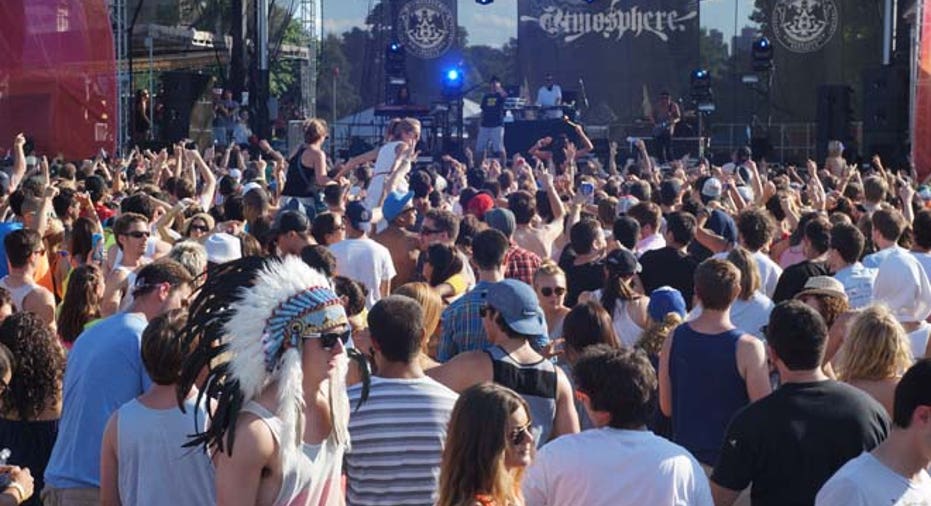Eventbrite: Millennials, Driven by FOMO, Spending More on Experience Economy

According to new research by Eventbrite, a majority of millennials are increasingly spending their money and time on live experiences over material goods.
The online event ticketing and registration site finds that millennials highly value experiences, and are increasingly spending their money and time on them. Seventy-eight percent of millennial poll respondents said that “when it comes to money, ‘experiences’ trump ‘things.’” According to Eventbrite, site ticket sales for beer festivals, concerts and Color Runs have quadrupled since 2011.
Not only that, but Eventbrite says millennials are spending more money on “experience” events, such as festivals and 5k races, than on material possessions. In the past year, 82% of survey participants indicated they had attended a live event, and 72% said they wanted to allocate more of their money towards real-life experiences going forward.
Eventbrite's survey suggests that millennials, who now account for about $1.3 trillion in annual consumer spending per the U.S. Department of Commerce's Bureau of Economic Analysis, are at the helm of a new economy — the Experience Economy.
“We know from our research that engaging in experience helps millennials form a sense of identity, differently from how other generations defined identity at their same age,” says Eric Meyerson, head of Consumer Insights at Eventbrite.
Oxford Dictionaries defines FOMO (or Fear of Missing Out) as anxiety, often brought upon by posts seen on social media, that some exciting event may be taking place elsewhere. And Eventbrite says FOMO is driving “millennials’ experiential appetite.” The survey found nearly 7 in 10 millennials said they have FOMO.
This group is also feeling less pull to put money down for traditional “rite of passage” purchases like first cars or houses, which Meyerson attributes to their feeling more drawn to identity-shaping experiences than past generations. In fact, 69% of respondents said they believe attending these live experiences helps them connect better with their peers, their community and people around the world.
But might this shift in spending have at least an indirect correlation to the fact that Gen Y is still reeling from the Great Recession of 2008, struggling to find full time work and living back home?
Meyerson says this particular age group doesn’t hold the exclusive on the demand for live experiences, and that since 1987, general consumer spending on these events has increased 70%. Further, these events aren’t exactly cheap — Meyerson says tickets for major music festivals, plus the cost of travel, can cost hundreds or even thousands of dollars.
“In a world where life experiences are broadcasted across social media, the fear of missing out drives millennials to show up, share and engage.”



















